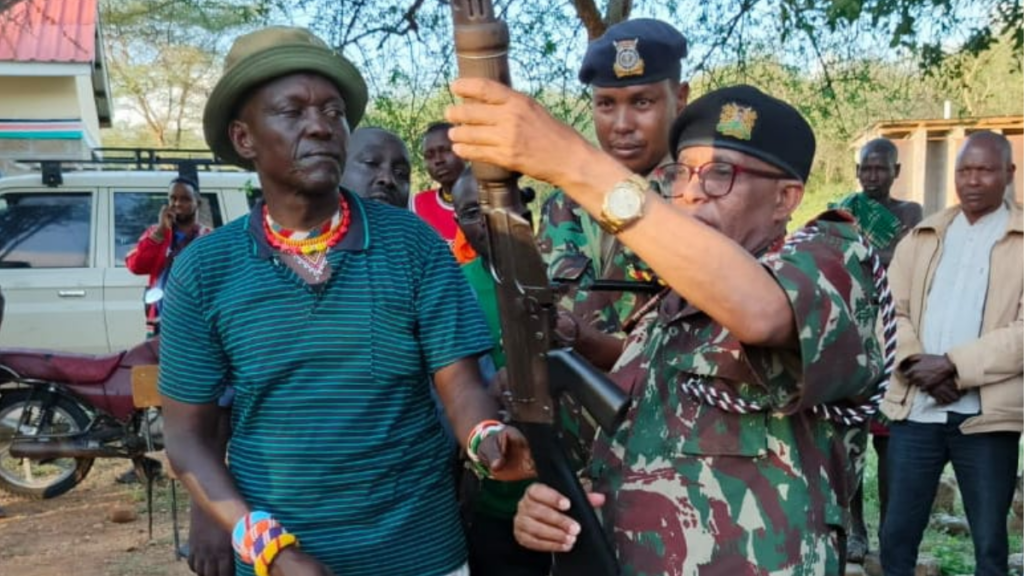A suspected bandit operating along the West Pokot and Elgeyo Marakwet border has surrendered to security authorities and handed over his AK-47 rifle in a major boost to ongoing disarmament efforts in the North Rift region.
The suspect, identified as Lokapel Akol, walked into the hands of the authorities with his weapon, marking a significant milestone in the government’s operation to curb insecurity in the Kerio Valley. Officials welcomed the move, saying it demonstrated the growing cooperation between communities and the government in addressing long-standing insecurity challenges.
The surrender is part of an ongoing amnesty program rolled out by the government to encourage individuals in possession of illegal firearms to voluntarily hand them over. The initiative is tied to a larger security operation launched recently in the North Rift, where banditry and cattle rustling have plagued communities for decades.
So far, security agencies in the area have recovered two AK-47 rifles, 39 rounds of ammunition, and three magazines from individuals who chose to surrender. In a separate case, another reformed bandit, identified as Ruto Komen, presented himself to the police on September 7, handing over his rifle, 27 rounds of ammunition, and one magazine.
Authorities have been engaging bandits in dialogue, often involving family and community leaders, to encourage them to abandon criminal activity and reintegrate into society. After discussions with Komen, security officers allowed him to return to his family, signaling a softer approach aimed at building trust and sustainable peace.
The government and local leaders remain optimistic that these acts of surrender will inspire more individuals still holding illegal firearms to follow suit. Residents in West Pokot and Elgeyo Marakwet, who have lived under constant threat from bandit attacks, also view the initiative as a crucial step toward restoring peace and security.
As more weapons are handed over, the hope is that the region will finally experience lasting stability, enabling communities to focus on development and rebuilding trust across borders that have long been divided by violence.

